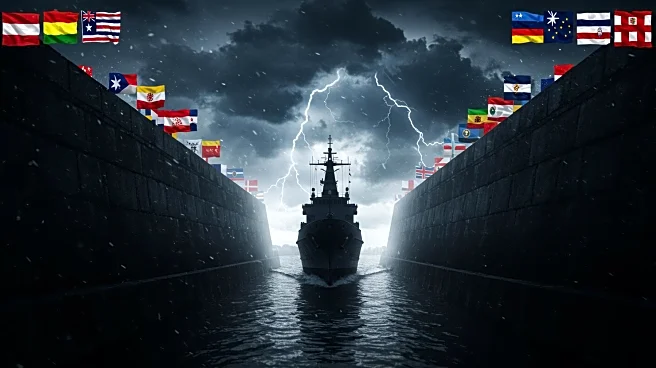What's Happening?
The United States and China engaged in a heated exchange at the United Nations over the strategic control of the Panama Canal. The U.S. expressed concerns about China's growing influence over the canal, which it views as a potential threat to global trade and security. Acting U.S. Ambassador Dorothy Shea highlighted China's influence over critical infrastructure and port operations in the canal area. In response, China's U.N. Ambassador Fu Cong defended Panama's management of the canal and accused the U.S. of using the issue as a pretext for control. The canal, built by the U.S. in the early 1900s, was transferred to Panama in 1999 under a treaty signed by President Jimmy Carter.
Why It's Important?
The Panama Canal is a crucial maritime route that facilitates global trade by connecting the Atlantic and Pacific Oceans. The U.S. and China's clash over its control underscores the strategic importance of the canal in international trade and geopolitics. The U.S. fears that China's influence could disrupt maritime security and commerce, while China accuses the U.S. of seeking to regain control. This dispute highlights broader tensions between the two nations over maritime dominance and could impact global shipping routes and economic stability.
What's Next?
The U.S. has pressured China to sell its interests in the canal to a U.S. consortium, which Panama has rejected. The Trump administration's stance may lead to further diplomatic tensions and negotiations. Panama's President José Raúl Mulino emphasized the canal's neutrality and sovereignty, which may be pivotal in future discussions. The situation could lead to increased U.S. military presence in Panama, as indicated by recent agreements for security coordination.








